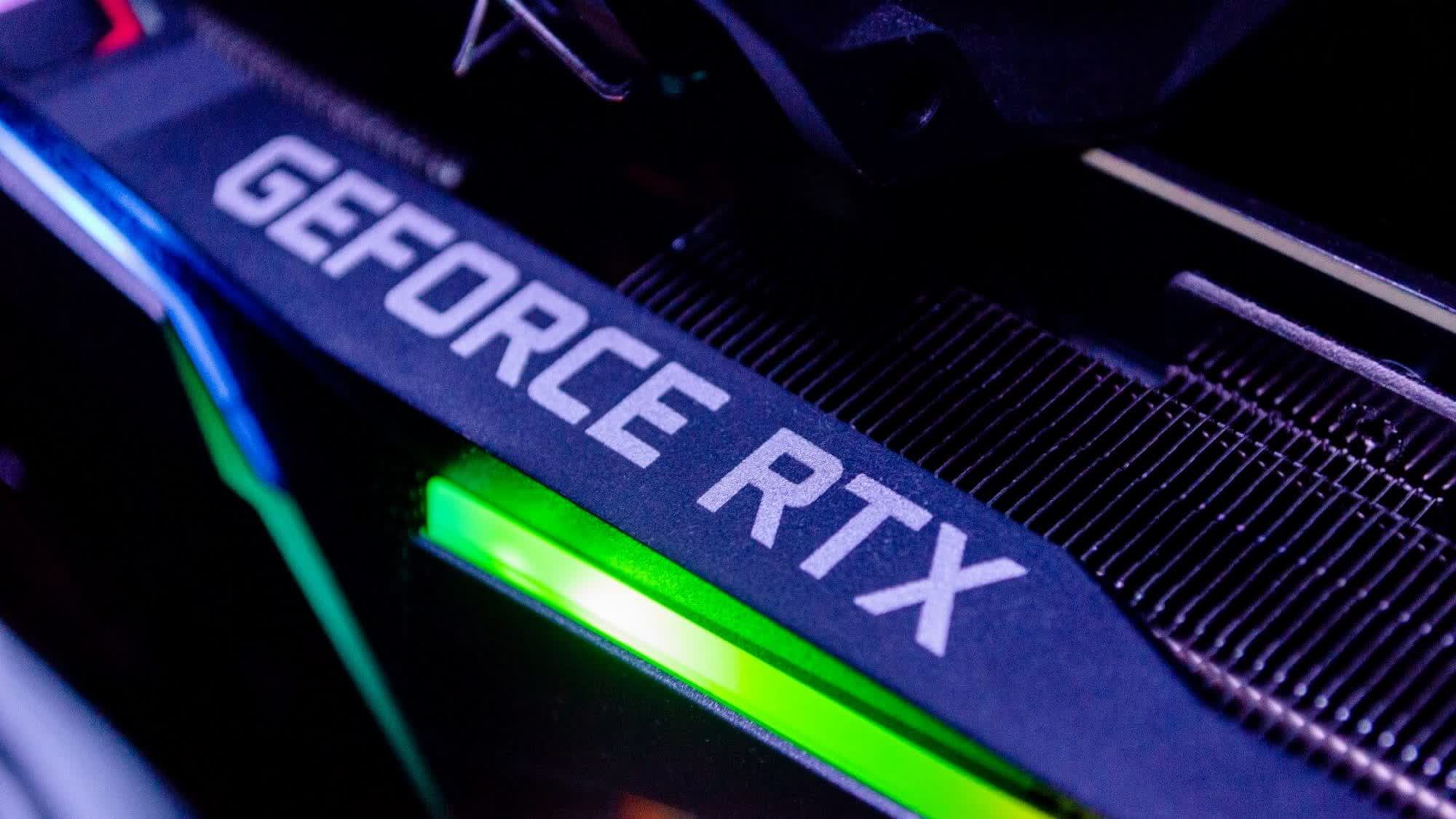Recap: Leaks and rumors over the past year have constructed a changing picture of Nvidia's next-generation graphics cards, indicating that the company's plans remain in flux. While performance predictions have remained relatively stable for months, the flagship model's release date has shifted, and new reports raise questions about the lineup's memory interface.

Known leaker @kopite7kimi recently stated that the top-end RTX 50 series GPU would upgrade to a 512-bit memory interface but doesn't expect the bus improvements to trickle down the hardware stack. The memory configurations of the other upcoming Blackwell products might resemble their Ada Lovelace predecessors instead.
Since late last year, leaks suggested that the Blackwell flagship – likely named the GeForce RTX 5090 – move from GDDR6X to the faster GDDR7, providing the primary VRAM improvement, but wouldn't exceed the RTX 4090's 24 GB 384-bit memory interface. However, new information indicates a 512-bit bus for the 5090, which, combined with other rumors, could make the card significantly faster than its predecessor.
Unfortunately, Kopite doesn't expect the other Blackwell cards to receive a similar uplift. The GB203 and GB205 GPUs will be 256-bit and 192-bit, respectively, matching the 16 GB RTX 4080 Super's AD103 and the 12 GB RTX 4070 Super's AD104.
Thanks as always. GB203 is 256-bit and GB205 is 192-bit.
– kopite7kimi (@kopite7kimi) March 12, 2024
Nvidia has faced criticism for skimping on VRAM in its recent mid-range and mainstream products. Cards like the RTX 3070 and 4060 only include 8 GB of memory, while the 3060 has 12 GB. The new rumors regarding Blackwell don't mention its mainstream variant, but they could stoke concerns over another VRAM-starved 128-bit product.
Memory type is another critical yet unconfirmed detail worthy of note. The RTX 4070 Super, 4080 Super, and 4090 all feature GDDR6X VRAM, so some other Blackwell cards could shift to GDDR7 like the 5090.
Although performance improvements in the non-enthusiast RTX 5000 GPUs remain unknown, the 5090 should see a 60 - 70 percent boost over the 4090 due to having 50 percent more cores, 78 percent more L2 cache, and a 15 percent frequency increase. Based on TSMC's 3nm node, it will support DisplayPort 2.1 and PCIe 5.0.
Whether Nvidia will launch Blackwell in late 2024 or early 2025 is unclear, but the most recent information leans toward the former. We also expect Intel and AMD to release new generations of GPUs this year.
https://www.techspot.com/news/102253-nvidia-blackwell-rtx-5000-memory-interface-boost-might.html